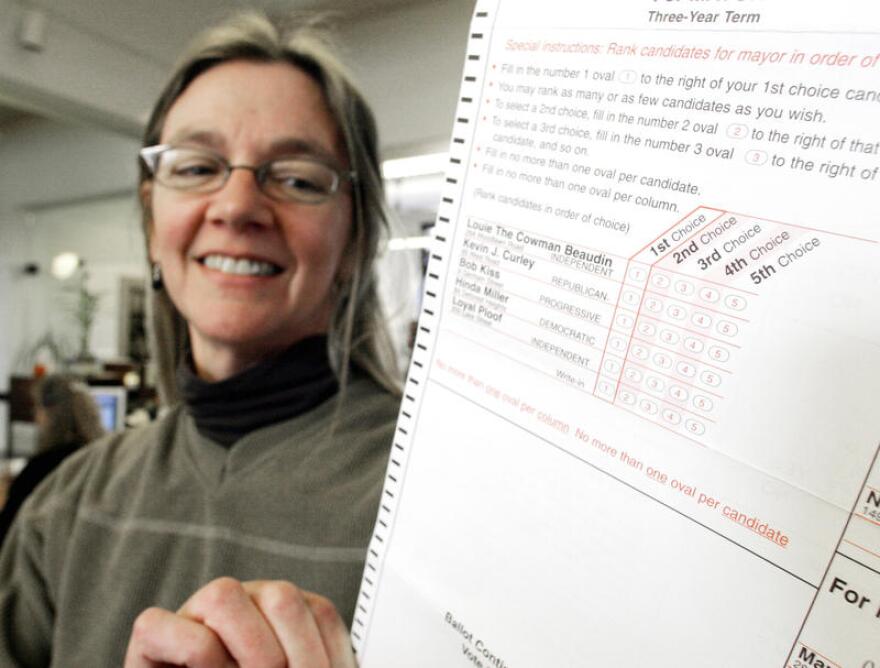Maine voters in next month’s state primary will be the first to use ranked-choice voting for state elections. Election experts say many voters don’t understand how the system works, but they’re hopeful voter education programs now running can help clear up any confusion.
There have been a lot of news stories about legal challenges to ranked-choice voting and a legislative move to suspend its use. But are Maine voters aware of how to use it when they go to their polling places on Election Day?
"I suspect a fair amount of voters in June are going to show up without a full idea of what they’re doing for ranked-choice voting," says University of Maine political science professor Mark Brewer.
Brewer says he's cautious, but sees how next month’s election could be a good test run.
"I don’t think it will be as bad as it would be in November, because it is a primary with more attentive voters," he says.
Brewer says that’s why it's important that a slew of public service messages and other education efforts are underway. Jim Melcher, who teaches politics at the University of Maine at Farmington, agrees.
"I think even a lot of relatively educated voters are still trying to figure out the ranked-choice voting system," he says. "At the college where I teach, a lot of very bright people are saying, 'Oh, could you explain some more of this to me?'"
Melcher says Republicans are challenging ranked-choice voting as a party, and that may affect Republicans using the system in the primary election for governor.
Democratic Secretary of State Matt Dunlap has launched a voter education campaign that includes several forums around the state, a webpage devoted to explaining how it works and a five-minute web video. He says more politically aware voters understand how to use the ranked-choice voting system, but that less-engaged voters could be confused when they see it for the first time.
https://www.youtube.com/watch?v=xcGGH7E_vNk
"Here you are working with someone who may have worked a double shift, and they are walking to the polling station at five minutes of 8 p.m. on election night, and they have never seen this before. Everything we do in elections is predicated on helping that voter," he says.
Dunlap says that includes materials explaining the system that voters can read as they cast their first votes using the ranking system.
Advocates of ranked-choice voting say once voters have used the new system, they will see how easy it is to use. But supporters realize the need to educate voters, particularly for this first election.
Several groups are using different strategies, including a direct mail campaign sent to hundreds of thousands of voters, a speaker’s bureau giving speeches and presentations across the state and TV ads costing hundreds of thousands of dollars.
Kyle Bailey, campaign manager for the Committee for Ranked Choice Voting, says adopting the new voting system is a major change in the way Mainers elect candidates.
"The Committee for Ranked Choice Voting and our allied organizations and others who are part of a broad coalition that are interested in making sure voters are engaged and informed and participatory in the political process obviously are making sure those tools are available to voters and assisting with voter education," he says.
But Brewer says most Mainers won’t focus on the primaries until next month, and some not until they go to the polls.



